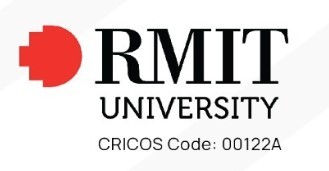
Master of Animation, Games and Interactivity


Overview
Duration
FULL-TIME 2 YEARS
FULL-TIME 2 YEARS
Scholarship
YES
YES
Fee
AU$38,400
AU$38,400
Intake
FEBRUARY, JULY
FEBRUARY, JULY
Overview
- In the Master of Animation, Games and Interactivity, our students work alongside ACMI X, exhibit their work at the Melbourne International Animation Festival and have opportunities to collaborate with academic staff, industry practitioners and RMIT research centres.
- You will develop your directorial vision as you learn concepts and techniques of narrative, visual and interactive media in a studio setting.
- This degree builds on more than 20 years of RMIT’s success in postgraduate teaching and research, focusing on the advanced theoretical and practical aspects of professional production in animation, games and interactive media.
- As you acquire skills in these areas, you will develop a directorial vision and in-depth understanding of narrative, visual and interactive media through studio projects and collaborations that focus on current global trends.
- By the end of your studies, you will have completed a number of major studio works in your specialisation, as well as a substantial amount of research.
Inquire Now
Career
The Master of Animation, Games and Interactivity gives you globally transferable skills that open career opportunities across the world.
- Animation, games and interactive media industries are constantly evolving, often driven by radical technological change.
- This specialist degree has been designed to keep pace with this speed of change, and prepare you with the practical skills and theoretical foundations to adapt to and lead change in your chosen industry.
- You’ll be equipped to respond to changes in the animation, games and interactive media fields, with a focus on core principles that can be updated and redefined.
- You’ll have many industry networking opportunities and build relationships that can open up future collaborations as your career advances.
- Once you graduate you might pursue careers in:
- 2D or 3D animation
- motion graphics design
- interaction design
- visual effects
- games development
- web design
- character design
- pre-production art
- app and web development
- VR and AR projects.
Entry requirement
- To study this course you will need to complete one of the following English proficiency tests:
- IELTS (Academic): minimum overall band of 6.5 (with no individual band below 6.0)
- TOEFL (Internet Based Test - IBT): minimum overall score of 79 (with minimum of 13 in Reading, 12 in Listening, 18 in Speaking and 21 in Writing)
- Pearson Test of English (Academic) (PTE (A)): minimum score of 58 (with no communication band less than 50)
- Cambridge English: Advanced (CAE): minimum of 176 with no less than 169 in any component.
Popular Courses
Start your journey with landmark today!
Find your perfect course
Answer a few questions and
our course matcher will do the rest
Head Office
Level 5, IT Plaza
Kamaladi, Kathmandu
Tel: +977 14542781, 9845566225
E-mail: info@landmarkedu.com
Kamaladi, Kathmandu
Tel: +977 14542781, 9845566225
E-mail: info@landmarkedu.com
Sydney office
Suite 1 Level 1,
46 Macquarie Street,
Parramatta, NSW
Tel: +61 415 122 814
46 Macquarie Street,
Parramatta, NSW
Tel: +61 415 122 814
Branch office
Sahidchowk, Chitwan
Tel: 056-590825
Tel: 056-590825
Mahendrachowk, Biratnagar
Tel: 021-590828
Tel: 021-590828
Level 2, Milanchowk, Butwal, Rupandehi
Tel: 977-71-591694
Tel: 977-71-591694
© Landmark Education. All rights reserved.


